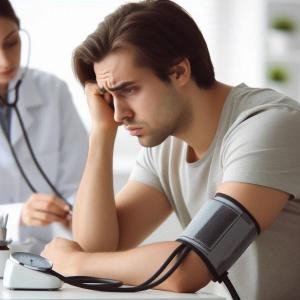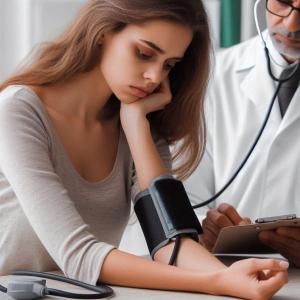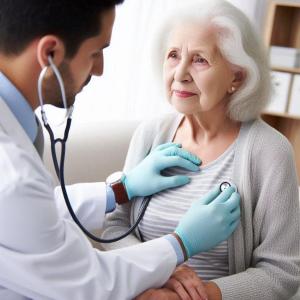
What is Colon Cancer?
Colon cancer, also known as colorectal cancer, is a type of cancer that originates in the large intestine (colon) or the rectum. The colon and rectum are parts of the body’s digestive system, which processes food into energy and eliminates waste. Colon cancer typically starts as small, benign (non-cancerous) clumps of cells called polyps that form on the inner lining of the colon or rectum. Over time, some of these polyps can develop into cancer.
Colon cancer is one of the most common types of cancer and can affect both men and women, especially as they get older. The progression of the disease can vary, but it generally begins in the innermost layer of the colon and can spread to other layers and, eventually, to other parts of the body.
How Does One Get Colon Cancer?
Colon cancer develops due to a combination of genetic factors and lifestyle choices. Here are some key factors that can contribute to the development of colon cancer:
-
Genetic Mutations: Mutations in certain genes can increase the likelihood of cells in the colon or rectum becoming cancerous. Some people inherit these mutations from their parents, making them more susceptible to colon cancer.
-
Diet: A diet high in red or processed meats and low in fruits, vegetables, and whole grains can increase the risk of colon cancer. Foods that are high in fat and low in fiber are particularly problematic.
-
Age: The risk of colon cancer increases significantly after the age of 50. Most cases occur in people over 50, although it can occur in younger individuals as well.
-
Personal or Family History: Individuals with a personal history of polyps or colorectal cancer are at a higher risk of developing the disease. Additionally, a family history of colon cancer or inherited conditions like Lynch syndrome or familial adenomatous polyposis (FAP) can also increase risk.
-
Inflammatory Bowel Diseases: Conditions such as Crohn's disease and ulcerative colitis, which cause chronic inflammation of the colon, can increase the risk of colon cancer.
-
Lifestyle Factors: Sedentary behavior, obesity, smoking, and heavy alcohol use are associated with an increased risk of colon cancer.
-
Diabetes: People with diabetes or insulin resistance may have an increased risk of colon cancer.
Who Is Most at Risk of Colon Cancer?
Several factors contribute to the risk of developing colon cancer, and understanding these can help identify who is most at risk:
-
Age: As mentioned earlier, the risk of colon cancer increases with age, particularly after 50.
-
Genetic Predisposition: Those with a family history of colon cancer or specific genetic syndromes like Lynch syndrome or FAP are at significantly higher risk.
-
Ethnicity: African Americans have a higher incidence of colon cancer compared to other ethnic groups in the United States. Ashkenazi Jews also have a higher risk.
-
Lifestyle Factors: Individuals who lead a sedentary lifestyle, consume a diet high in processed meats, are obese, or use tobacco and alcohol excessively are at a heightened risk.
-
Chronic Inflammatory Conditions: People with inflammatory bowel diseases, such as Crohn's disease or ulcerative colitis, have a higher risk due to the chronic inflammation of the colon.
-
Type 2 Diabetes: Individuals with type 2 diabetes may be at a higher risk of developing colon cancer, possibly due to insulin resistance and high levels of insulin, which may promote cancer growth.
-
Previous History of Cancer or Polyps: Those who have had colon cancer or adenomatous polyps in the past are more likely to develop colon cancer again.
What Does Colon Cancer Look Like? How Do I Know If I Have Colon Cancer?
Colon cancer may not cause any symptoms in its early stages, which is why regular screening is crucial, especially for those at higher risk. However, as the cancer progresses, it can cause various symptoms:
-
Changes in Bowel Habits: Persistent changes in bowel habits, including diarrhea, constipation, or a change in stool consistency, may be a sign of colon cancer. These changes often last for more than a few days.
-
Blood in Stool: Blood in the stool (which may make it appear dark or cause it to be bright red) is a common sign of colon cancer. Sometimes, the bleeding can be so slow that it is not noticeable, but it can still lead to anemia (a low red blood cell count).
-
Unexplained Weight Loss: Sudden, unintentional weight loss may be a symptom of colon cancer or another serious condition.
-
Persistent Abdominal Discomfort: Cramping, gas, or pain in the abdomen that does not go away can be a symptom of colon cancer.
-
Weakness or Fatigue: Colon cancer can cause fatigue and weakness due to anemia from chronic bleeding or due to the cancer's effects on the body.
-
Feeling That the Bowel Doesn't Empty Completely: This can be a sign that there is a tumor obstructing part of the colon.
Diagnosis of Colon Cancer
If colon cancer is suspected, a doctor may recommend several tests:
-
Colonoscopy: The most common and effective test for detecting colon cancer. During a colonoscopy, a flexible tube with a camera is inserted into the rectum to examine the entire colon. If polyps or suspicious areas are found, they can be biopsied or removed during the procedure.
-
Stool Tests: Tests like the fecal occult blood test (FOBT) or fecal immunochemical test (FIT) can detect hidden blood in the stool, which may be a sign of colon cancer. Another stool test, the stool DNA test, can detect DNA changes associated with colon cancer.
-
CT Colonography (Virtual Colonoscopy): This is a specialized CT scan that provides detailed images of the colon and rectum. It’s less invasive than a traditional colonoscopy but may not detect all polyps or cancers.
-
Flexible Sigmoidoscopy: Similar to a colonoscopy, but it only examines the rectum and lower part of the colon. It’s less invasive, but it may miss cancers in the upper part of the colon.
-
Biopsy: If a suspicious area is found during a colonoscopy or other test, a biopsy may be taken to determine if cancer cells are present.
-
Blood Tests: Blood tests may be used to check for anemia or to assess liver function, as colon cancer can spread to the liver. A specific blood test called a carcinoembryonic antigen (CEA) test may be used to monitor treatment response in those already diagnosed with colon cancer.
Prevention of Colon Cancer
While there’s no sure way to prevent colon cancer, several strategies can significantly reduce the risk:
-
Regular Screening: Regular screening for colon cancer can detect polyps before they become cancerous or catch cancer in its early stages when it is most treatable. Screening is recommended starting at age 45 for most people, but those with higher risk factors may need to start earlier.
-
Healthy Diet: A diet rich in fruits, vegetables, whole grains, and lean proteins can help lower the risk of colon cancer. Reducing the intake of red and processed meats, refined grains, and sugary foods is also beneficial.
-
Physical Activity: Regular exercise is associated with a lower risk of colon cancer. Aim for at least 150 minutes of moderate-intensity exercise or 75 minutes of vigorous-intensity exercise each week.
-
Maintain a Healthy Weight: Obesity increases the risk of colon cancer, so maintaining a healthy weight through diet and exercise is important.
-
Limit Alcohol Consumption and Quit Smoking: Reducing alcohol intake and quitting smoking can significantly lower the risk of colon cancer.
-
Medications: For those at high risk of colon cancer, certain medications, like aspirin or other nonsteroidal anti-inflammatory drugs (NSAIDs), may reduce the risk. However, these medications have side effects and should only be taken under a doctor’s supervision.
-
Manage Chronic Conditions: Properly managing conditions like diabetes and inflammatory bowel disease can help lower the risk of colon cancer.
Treatment of Colon Cancer
The treatment of colon cancer depends on the stage of the cancer, the patient’s overall health, and their preferences. Here are the primary treatment options:
-
Surgery: Surgery is the most common treatment for colon cancer. It involves removing the part of the colon that contains the cancer along with nearby lymph nodes. The type of surgery depends on the cancer's location and stage:
-
Polypectomy: For very early-stage cancers confined to a polyp, the polyp may be removed during a colonoscopy.
-
Partial Colectomy: If the cancer is more advanced, a section of the colon may be removed, and the two healthy ends are reconnected.
-
Colostomy: In some cases, especially if the cancer is near the rectum, a temporary or permanent colostomy may be needed, where the end of the colon is attached to an opening in the abdomen to allow waste to exit the body.
-
-
Chemotherapy: Chemotherapy uses drugs to kill cancer cells. It is often used after surgery to eliminate any remaining cancer cells or before surgery to shrink tumors. Chemotherapy is also used for advanced-stage colon cancer that has spread to other parts of the body.
-
Radiation Therapy: Radiation therapy uses high-energy rays to target and kill cancer cells. It is more commonly used for rectal cancer than colon cancer, often in combination with chemotherapy.
-
Targeted Therapy: Targeted therapies are drugs that specifically target the cancer’s.



